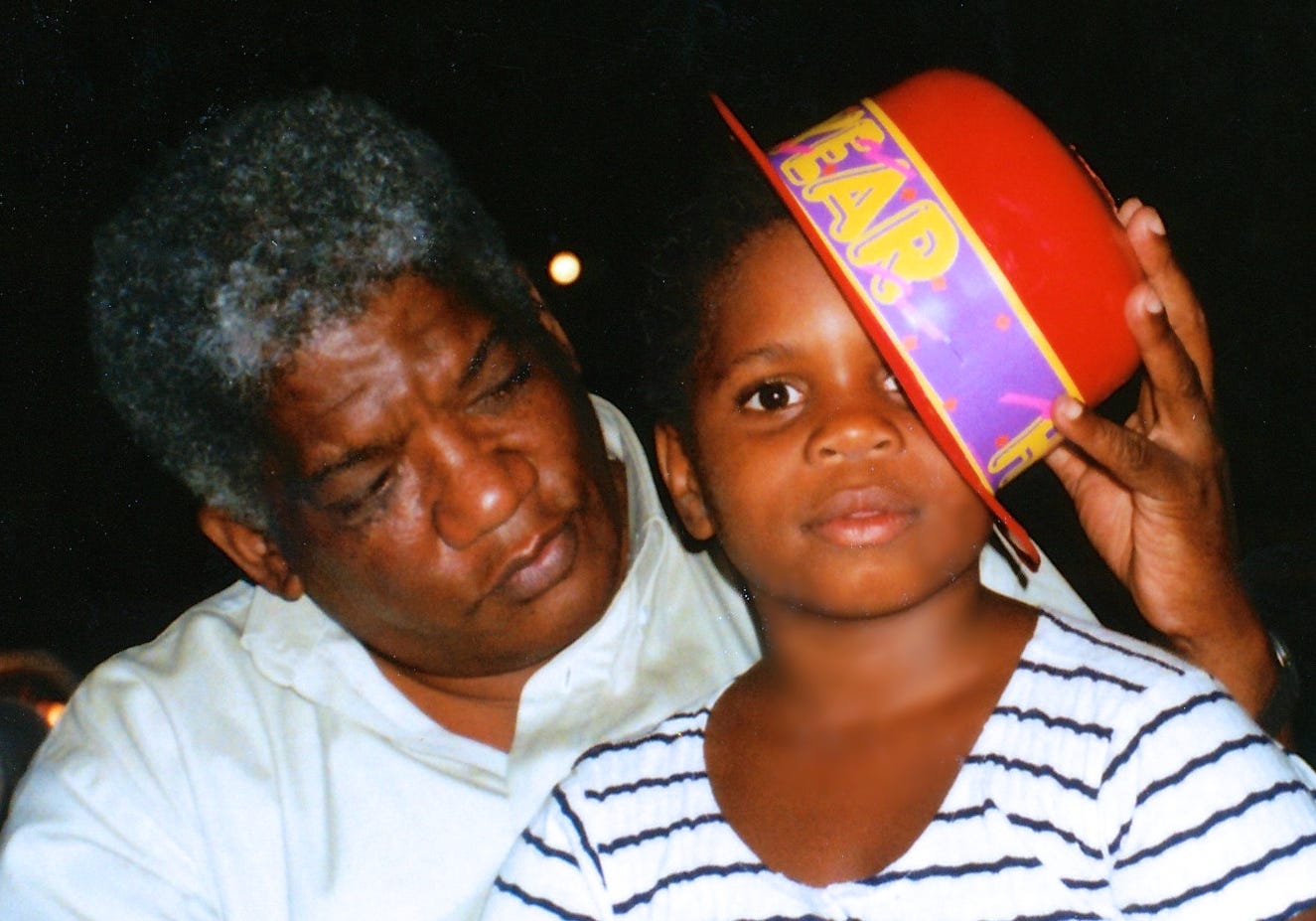I remember when my dad asked me to go to the grocery store, and I said no. This was his only opportunity to go outside and walk, even if just a few steps. I told him he needed to go himself. It breaks my heart to think about it now. I didn’t know he was dying. I didn’t know he only had a few weeks left. I thought we had years.
In those final weeks, his body was slowly shutting down, though none of us recognized it for what it was. To us, it looked like old age catching up—the result of decades of inertia and too many sweet things. I was still talking to him about exercising, getting more movement, walking outside—anything to give us more time. I was angry with him for not taking better care of himself. And even though I knew time was short, I couldn’t watch him decline. I couldn’t watch him struggle down the stairs or lose his breath just walking to the car. I was angry at how fast it was all unraveling. And in my anger, I distanced myself.
But grief teaches you things. Slowly, heart-wrenchingly, and often too late.
You really never know what people are going through. It’s so easy to view someone else’s choices through the lens of your own expectations. So easy to make their life about you—how their actions inconvenience you, how their behavior disappoints you, how you wish they were different. And in the process, we forget that they might be carrying invisible burdens, fighting silent battles, or running out of time.
So whatever you're carrying—your annoyance, your expectations, your sense of what should be—hold it lightly. And give people grace. More than they ask for. More than you think they deserve. Because you don’t really know what’s going on.
The more grace you give, the more grace you receive.
I wish I had been kinder to my father. I wish I had been more patient, more present, more understanding. I wish I had gone with him to the supermarket. I wish I had held his hand while he walked down those stairs. For a father who had been so doting and attentive, I should have been less … self-centered. But I know he knew I loved him. And that is all the grace I need.
“I learned that opening myself to my own love and to life’s tough loveliness not only was the most delicious, amazing thing on earth but also was quantum. It would radiate out to a cold, hungry world.”
— Anne Lamott
I remember crying my eyes out to my sis-in-love days after he passed, reeking with guilt and shame. She told me about her own loss—her brother. She wished she had called him the day he died. She didn’t. And she said, “You will never do death the same way again.”
Maybe that too is one way life’s tough loveliness radiates out into a cold, hungry world. Through grief. Through the experience of death—of burying a loved one—that we all, if we live long enough, have the privilege of passing through. Being touched by death, being touched by grief, spills out in the way I care for others, in the way I look at my aging family members, in the softness I’m learning to extend to myself, in the work I choose to do, the stories I tell about my father, and in the way I try—I try and I try—to show up with my whole heart.
So give people grace. It’s not about being the bigger person. It’s not about moral superiority or spiritual maturity or choosing the high road so you can feel good about yourself later. Rather, it’s about decentering yourself long enough to recognize that not everything is about your timeline, your hurt, your interpretation of what love should look like. It’s about loosening your grip on the stories you tell yourself—the ones where you say, “I won’t wait anymore, because people should follow through. People should show up the way I show up.” It’s not that those things aren’t valid. But grace gives you room to breathe. It softens the space between expectation and reality. It allows for imperfection in others and in yourself.
Because love doesn’t always show up the way we intend it. And grace doesn’t always feel deserved. But we offer them anyway. It softens the world a little. It makes space for healing. It reminds us about the love that is the core of our humanity. And humanity, at its best, is grace in motion.
Happy Father’s Day, Daddy. I love you. I think about you every day. I am because of you.
Dig Deeper
Create your container of contentment. Light your candle, pour some tea, and find your fluffiest blanket and favorite journal. Answer these questions:
What is something you need to forgive yourself for? Write about it and let it go. Give yourself grace.
What is something you need to forgive someone else for? And when I say forgive, I don’t mean “forgive and forget,” or “turn the other cheek,” or “when they go low, we go high.” I mean: what is a burden you’ve been carrying that you’re ready to set down, for your own peace? Write about it and let it go. Give grace.
👋🏾 tee tee afen, ta ta for now!





If only the lessons came without the void that precedes them. I think about how our loved one’s transition can serve to transform us - and I guess in that way it’s not in vain. Holding you close and remembering your dear Daddy with much love.